The Wire at 20: Every episode ranked, from serial killer shark jumps to Omar’s tragic end
Rarely has TV been bolder or more brutal than David Simon’s landmark drama series, which made stars of Idris Elba, Michael B Jordan and the late, great Michael K Williams. As the show celebrates 20 years since its debut, Greg Evans ranks all 60 of its episodes

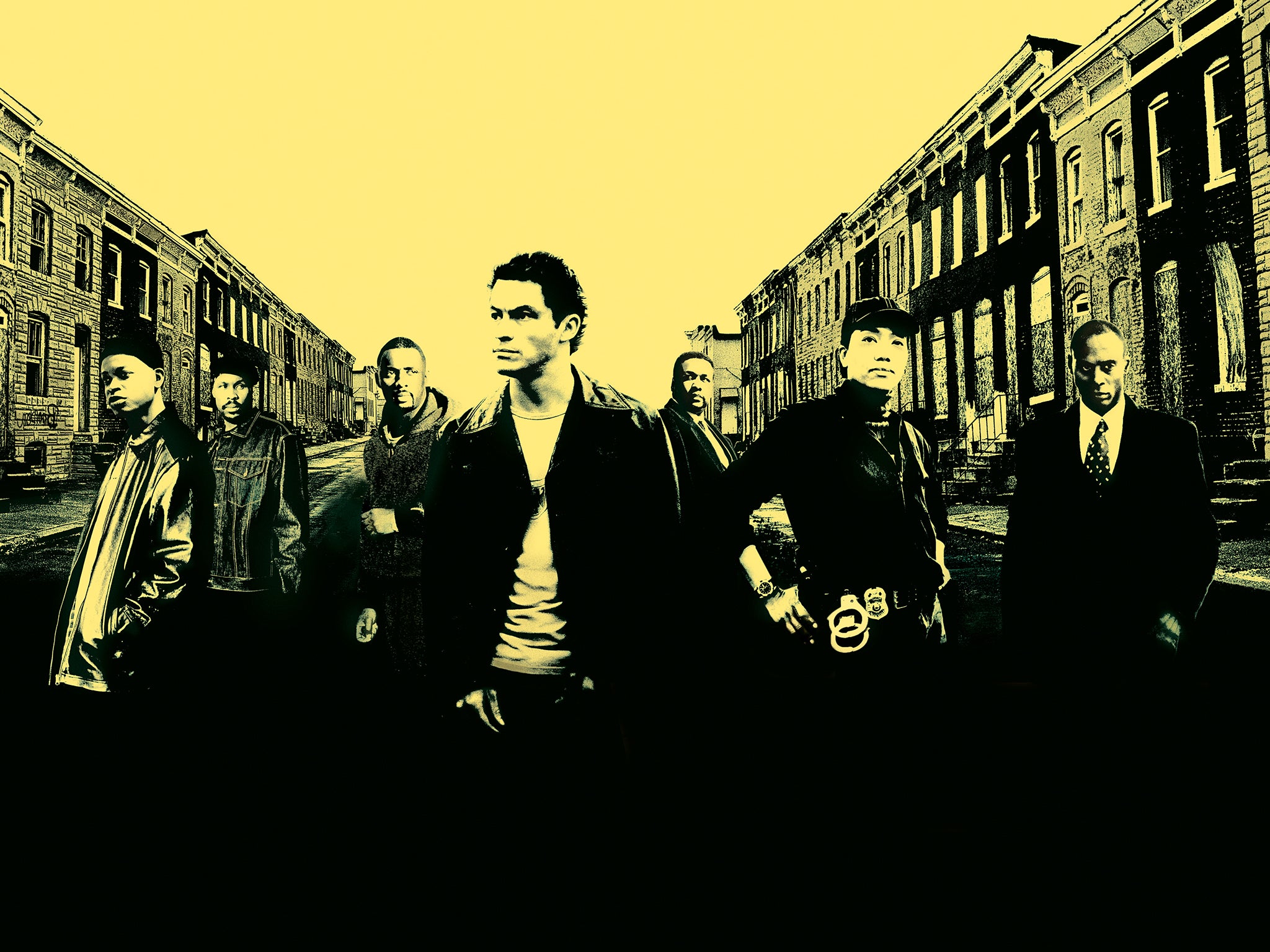
Your support helps us to tell the story
From reproductive rights to climate change to Big Tech, The Independent is on the ground when the story is developing. Whether it's investigating the financials of Elon Musk's pro-Trump PAC or producing our latest documentary, 'The A Word', which shines a light on the American women fighting for reproductive rights, we know how important it is to parse out the facts from the messaging.
At such a critical moment in US history, we need reporters on the ground. Your donation allows us to keep sending journalists to speak to both sides of the story.
The Independent is trusted by Americans across the entire political spectrum. And unlike many other quality news outlets, we choose not to lock Americans out of our reporting and analysis with paywalls. We believe quality journalism should be available to everyone, paid for by those who can afford it.
Your support makes all the difference.Twenty years ago this week, HBO debuted a provocative new cop show called The Wire. Created by David Simon, a former police reporter in Baltimore, it was based on the experiences of his writing partner, Ed Burns, a former homicide detective from the same city. While viewing figures were low, the lucky few who tuned in were treated to the first stages of one of the great American masterpieces: a fable that shone a light on a world we’d rather pretend didn’t exist.
Simon and Burns made it relatable to everyone by not focusing solely on crime. Over the course of the show’s five seasons, stories touched on bureaucracy, economics, politics, education and the media. These bold concepts weren’t played out with boring exposition, but through the stories of the show’s many complex characters, each of whom represented American institutions, and tended to be based on real individuals.
There was, for instance, Omar Little – played by the late, great Michael K Williams – a gay stick-up boy who robs drugs dealers but sticks to his own strict code of ethics. Then we had Detective Jimmy McNulty (Dominic West), a frustrated but talented police officer driven by his own ego and a desire to not play by the rules. On the opposite side of the law was the enigmatic Stringer Bell (Idris Elba), a supremely intelligent and educated drug kingpin, who attempted to change the very manner in which criminal organisations operate.
Those are just a handful of the characters that made up the world of The Wire and the stories that Simon told. They included covert police operations that attempted to topple criminal empires, to investigations into people-smuggling in the city’s docklands. It wasn’t all law and order, though. The Wire delved into the conflicts within city hall, the local newsroom and the school system – all to cement the message that every generation is doomed to repeat the mistakes of its predecessors.
Sixty episodes make up this magnum opus of television. As if by a miracle, there aren’t many bad ones. But a ranking is a ranking, so here’s every single episode of The Wire from worst to very best.
60. Unconfirmed Reports (season 5, episode 2)
For many viewers, this is where The Wire jumped the shark, descending into the cliches of less grounded cop shows. It sees McNulty deliberately tampering with a crime scene in order to create the illusion of a serial killer, resulting in the most divisive storyline in the show’s entire run.
59. The Dickensian Aspect (season 5, episode 6)
Season five’s clichéd, comical attempts to wrap up stories continues apace: McNulty kidnaps a homeless man, Detective Bunk Moreland has to work around a farcical lab error to get a positive ID on a suspect, and Omar goes on a rampage like Charles Bronson in Death Wish.
58. Ebb Tide (season 2, episode 1)
Season two’s bold switch in focus from the streets to the dock workers is controversial and takes a while to adjust. But the show doesn’t do itself any favours with a meek and uneventful first episode, despite it introducing the best iteration of the theme song – Tom Waits’s original version of “Way Down in the Hole”. The song is performed by different artists in each season to reflect their individual themes. The downbeat nature of Waits’ song fits in perfectly with the melancholic nature of the season’s new characters.
57. Collateral Damage (season 2, episode 2)
Season two’s stuttering start continues, with the only notable scene here being when The Greek – an older European gentleman largely responsible for the importing of drugs into Baltimore – orders a gruesome execution.
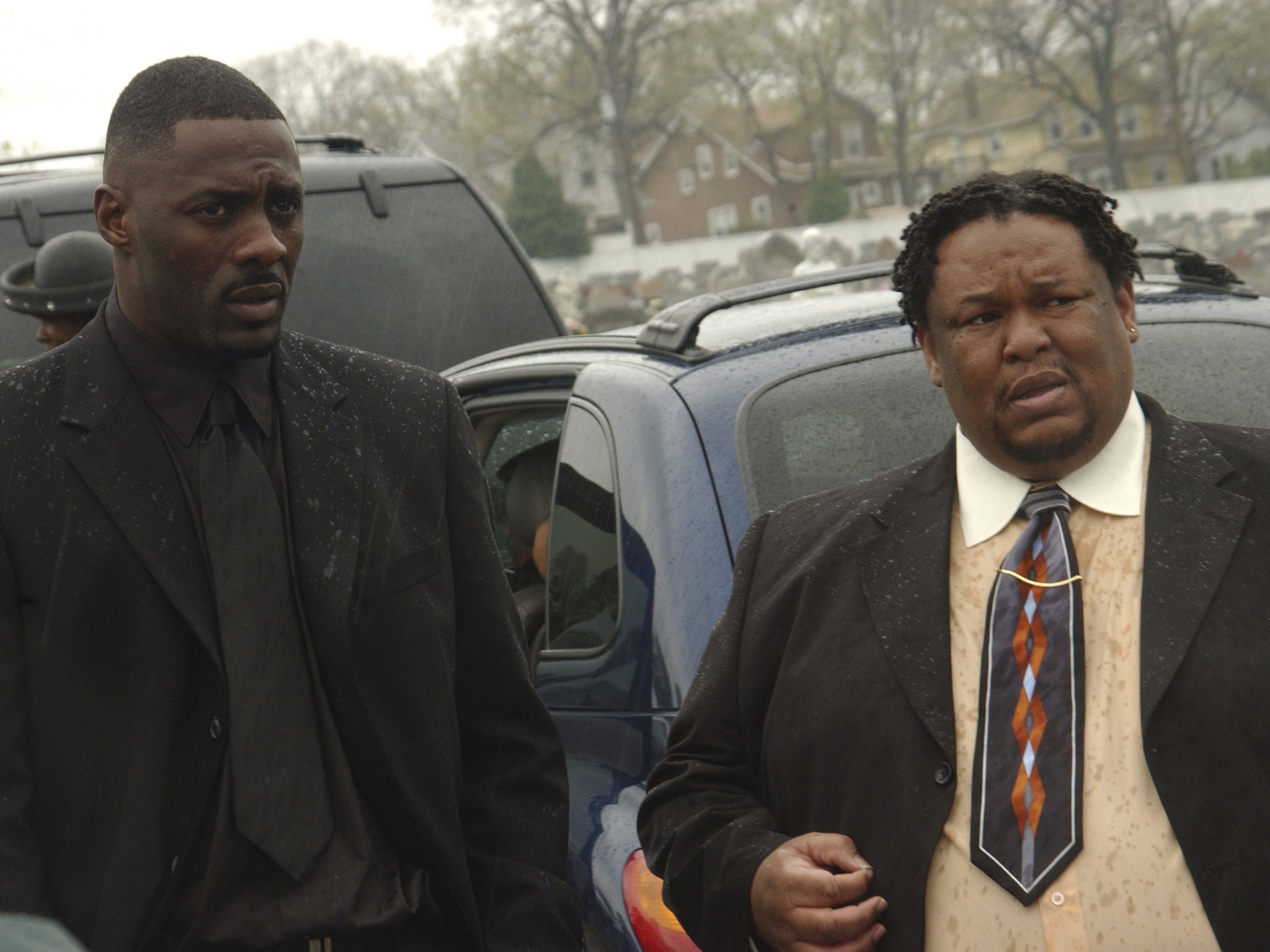
56. Backwash (season 2, episode 7)
Season two’s sorrowful tone is summed up in one oddly sombre yet comic scene. It sees aspiring drug dealer Bodie buy funeral flowers for the recently departed D’Angelo – a mentor of sorts to the younger dealers and the nephew of drug kingpin Avon Barksdale.
55. Reformation (season 3, episode 10)
There are just two things this meandering episode is known for. One is seeing the largely irredeemable Superintendent Bill Rawls – a man more focused on numbers than actual good police work – in a gay bar. The other is hitman Brother Mouzone embarking on a revenge mission searching for Omar.
54. Undertow (season 2, episode 5)
A minor episode with two notable moments: Omar going clothes shopping with McNulty for his court appearance, and Method Man’s debut as Cheese, the cocky nephew of old school gangster Proposition Joe.
53. Straight and True (season 3, episode 5)
Avon is released from prison after serving just two years of a seven-year sentence, and is immediately treated to a big party and a swanky new penthouse apartment – a true reflection of his power. In contrast, Cutty, a so-called “soldier” who has served a 14-year prison sentence, is back to doing low-level jobs on the street and buying urine to pass a parole test.
52. React Quotes (season 5, episode 5)
We’re treated to The Wire’s biggest eye-roll as Omar jumps from a fourth-floor balcony to escape the gunfire of his enemies. It seems like certain death, only for Omar to disappear from view within a matter of seconds and suffer just a broken leg. It’s thrilling, but more Marvel Cinematic Universe than Major Crimes Unit.
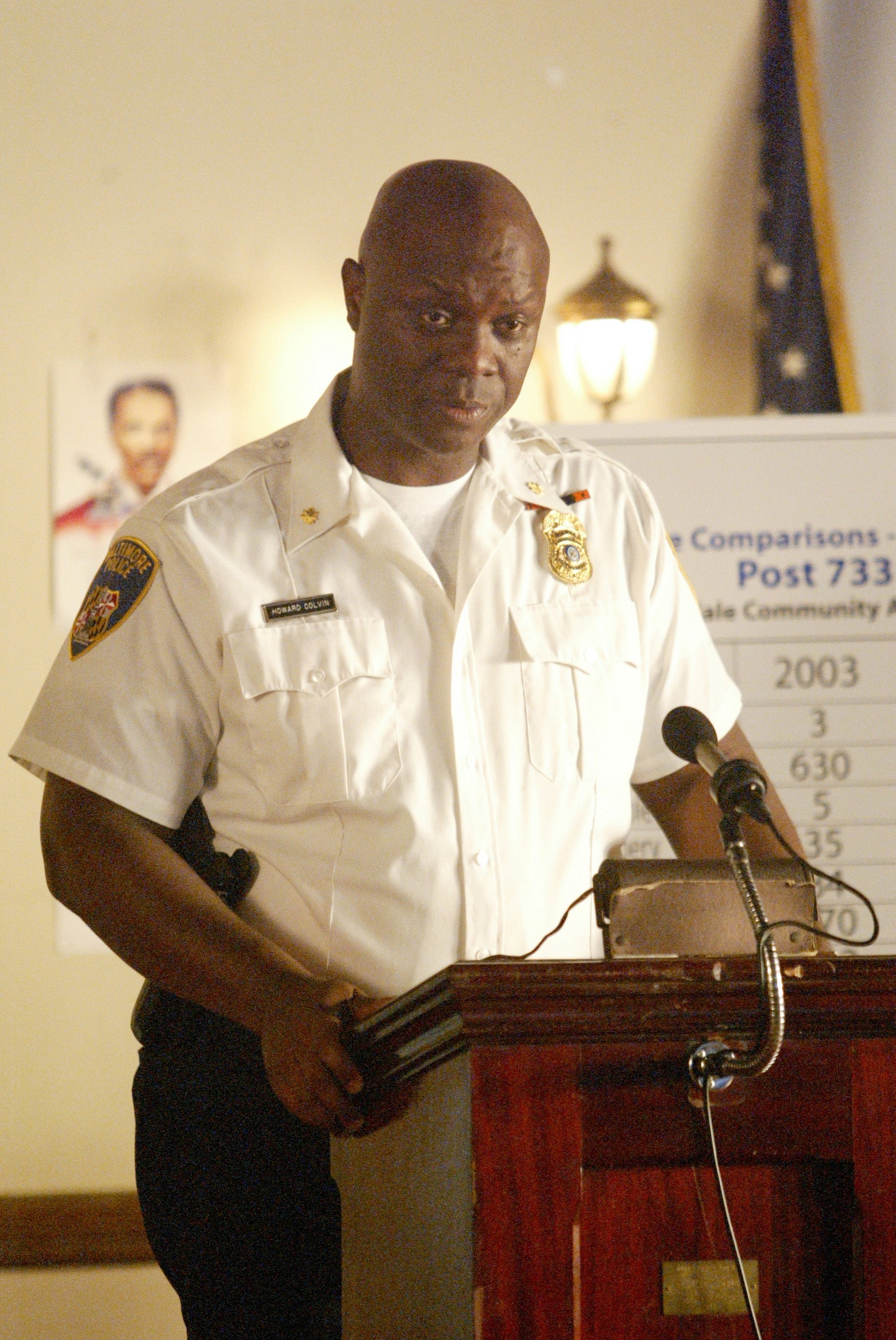
51. Hamsterdam (season 3, episode 4)
Hamsterdam was the radical legalised drug zone that the desperate Major Bunny Colvin created in order to get dealers off his streets and his bosses off his back. It’s one of the most interesting political ideas that The Wire presented us with. However, the actual episode that it’s named after is fairly uneventful. The only notable moment is when the head of the MCU, Cedric Daniels, confesses to McNulty that he’s now in a relationship with his former flame, attorney Rhonda Pearlman.
50. Not for Attribution (season 5, episode 3)
Bunk’s attempt to get McNulty to see sense over his fake serial killer ploy backfires, as detective Lester Freamon – one of the wiser and more level headed members of the police force – gets in on the scam.
49. Transitions (season 5, episode 4)
A pretty good episode is let down in its final moments, as McNulty and Lester stage a crime scene by biting a dead body with false teeth. A low point for both characters.
48. The Detail (season 1, episode 2)
Two things happen in this episode that stand out like a sore thumb. First McNulty and Bunk convince D’Angelo to write an “apology letter” to the children of a dead victim. Then Prez, Herc and Carver, three of the younger and more erratic members of the team investigating Barksdale, unwisely attempt to rough up some locals at the high rises for no apparent reason. For a show that prides itself on realism, these two moments feel like they’ve come straight from a more conventional cop show. They succeed neither as amusement nor shock value.
47. Time After Time (season 3, episode 1)
Season three almost does a complete 180 compared to its predecessor by taking things back to the streets. There’s a smattering of politics, while the cold and ruthless Marlo Stansfield – an up-and-coming drug kingpin who prefers to kill first and ask questions later – is first introduced.
46. Hard Cases (season 2, episode 4)
This is where season two attempts to take it up a notch, with a notably tense closing standoff between Bunk and portly dockworker Horseface in the Stevedores bar.
45. Lessons (season 1, episode 8)
The fragility of life in The Wire, and its subtle stabs at comedy, are in full effect in this episode. D’Angelo discovers that Wee-Bey, one of his colleagues in the Barksdale organisation, has a complete lack of humanity when a woman dies after he rapes her. Meanwhile, Bunk has a drunken – and funny – breakdown as he burns his clothes to try and hide his infidelity.
44. Took (season 5, episode 7)
An episode directed by Dominic West starts with a rather silly scene as McNulty puts on a weird accent to call the dishonest reporter Scott Templeton, who claims to have been in contact with the fake serial killer preying on the homeless. It ends with Kima Greggs, one of the few women we meet in the police force, reciting her own version of “Goodnight Moon” with her son. It’s The Wire’s sweetest and most tender moment.
43. Refugees (season 4, episode 4)
An incidental episode is bookended by two great Marlo scenes. He brazenly shoplifts in front of a supermarket security guard, and then has his first meeting with Omar. His robbery of a card game foreshadows the pair’s bloody conflict down the line.
42. More with Less (season 5, episode 1)
Mayor Tommy Carcetti (played by renowned Irish actor Aidan Gillen) has a bold new vision for the Baltimore police department. But it’s failing to materialise at the start of season five, as the cops struggle to deal with soaring crime rate on limited funds. The introduction of the media, in the form of the reporters in The Baltimore Sun’s newsroom, is also much more interesting 20 years on, almost serving as a warning against the incoming wave of “fake news”.
41. Duck and Cover (season 2, episode 8)
This episode is perhaps best remembered for McNulty getting totally wasted, crashing his car and having a one night stand. But it should be remembered for the tense conversation between the struggling dock worker union leader Frank Sobotka and his brother Louis, who rejects Frank’s offer to become part of the port’s advisory board on the grounds of nepotism.
40. All Due Respect (season 3, episode 2)
As the MCU grows more desperate in their attempts to incriminate their targets, they interview Cheese after they idly catch him on the wire talking about how he has had to kill someone. Cheese then tearfully confesses… to killing his dog.
39. Hot Shots (season 2, episode 3)
Season two might have a dramatic shift in focus, but we’re not allowed to forget just how powerful Avon is. Here he organises the smuggling of bad heroin into prison, solely to frame a corrupt guard.
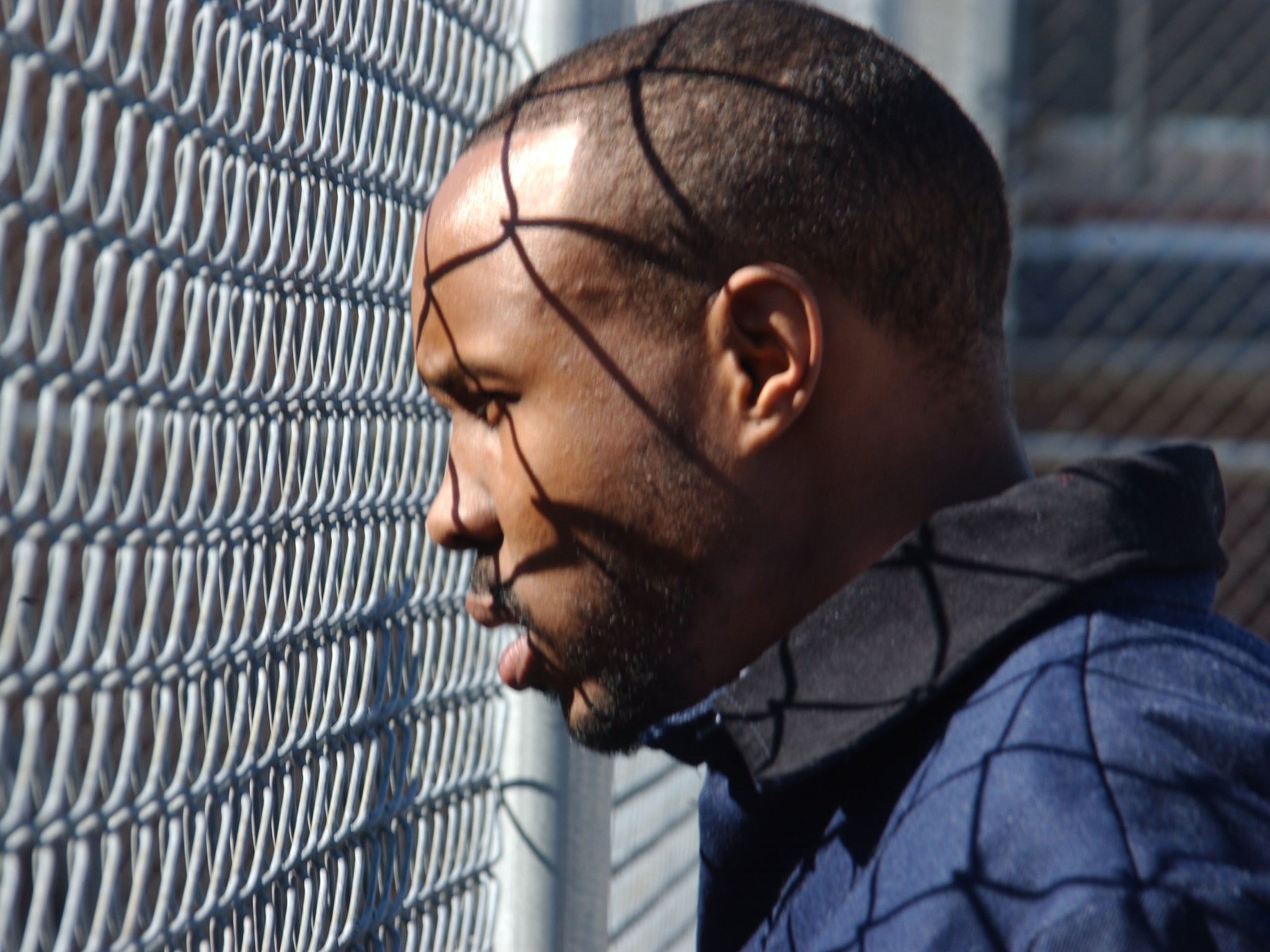
38. The Wire (season 1, episode 6)
This episode opens with a bold juxtaposition. Michael B Jordan’s Wallace, one of The Wire’s most tragic characters, is seen caring for children far younger than even him, while the dead body of Omar’s boyfriend Brandon – whose death Wallace was responsible for after spotting him in an arcade and reporting it to D’Angelo – lies festering on a car bonnet just metres away.
37. One Arrest (season 1, episode 7)
Three long term stories are introduced in this episode: the devious dealings of Senator Clay Davis; snitching drug addict Bubbles’ fight to get clean; the love/hate relationship between Bunk and Omar, who realise they were once schoolmates who have since taken very different paths. Many of these stories aren’t resolved until season five.
36. Alliances (season 4, episode 5)
“Alliances” is an appropriate name for this episode, as fragile bonds are forged. The most significant is state legislator Odell Watkins – a supremely influential (and underrated) character in Baltimore’s political system – turning his back on floundering Mayor Clarence Royce and siding with Carcetti. It serves as an important stage in the election race.
35. Back Burners (season 3, episode 7)
Possibly The Wire’s scariest ever scene is in this episode, as Bubbles witnesses sheer hell on the streets of Hamsterdam, with children playing just metres away from open drug use and people having sex in public.
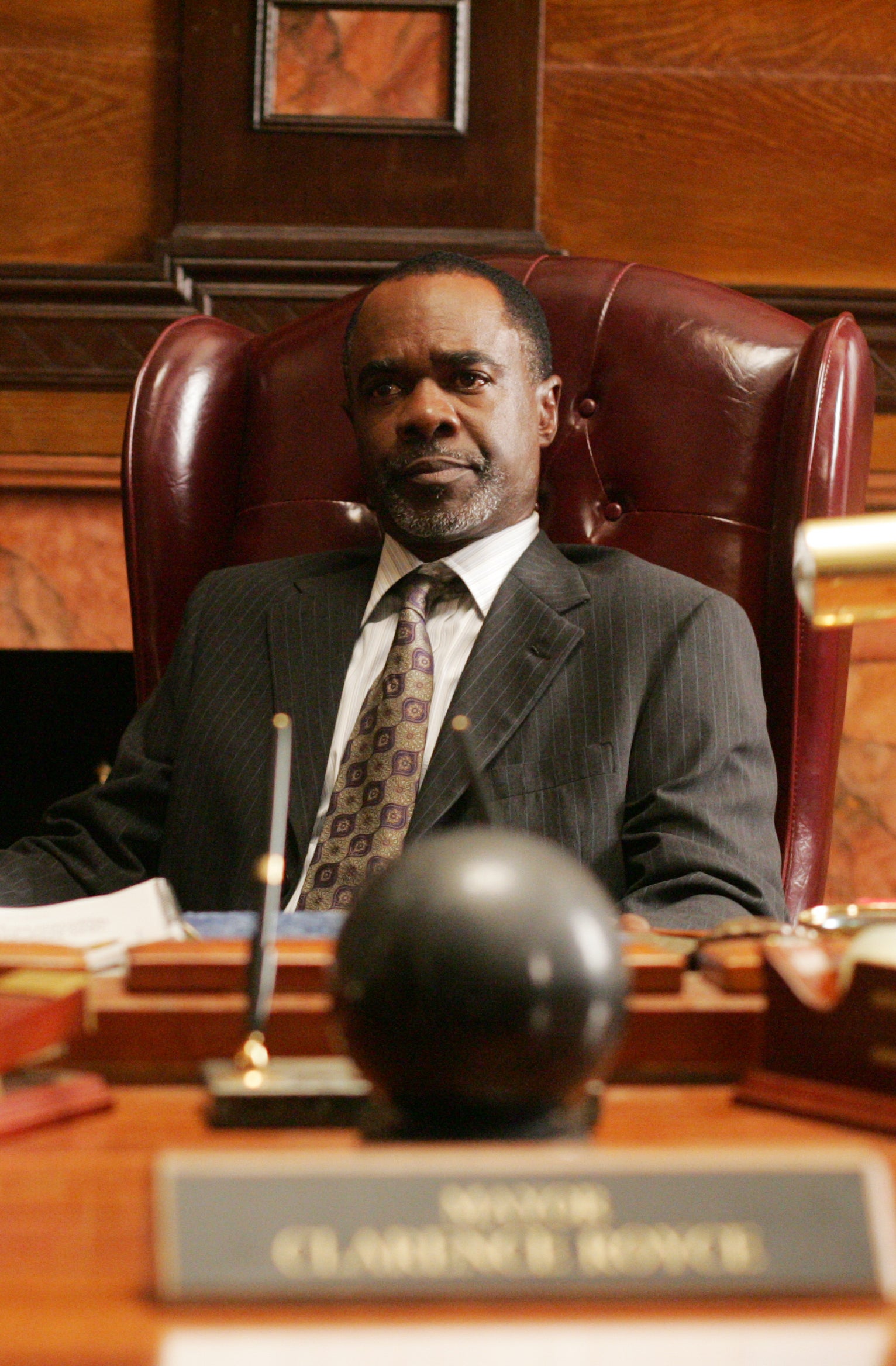
34. Soft Eyes (season 4, episode 2)
Mayor Royce receiving oral sex. Wee-Bey talking about wiping urine on his top lip. It’s not the typical start to a Wire episode, but it’s not all NSFW – we also see the early stages of Carver’s character-building bond with the youngsters who help the drug dealers on the corners, affectionately known as “hoppers”.
33. Corner Boys (season 4, episode 8)
Bunk does the one thing you should never do in the Homicide department and that’s un-solve a murder. But he has to do so in order to clear Omar’s name, even if it makes him very unpopular with his bosses.
32. The Pager (season 1, episode 5)
If you had to define Omar, a character whose presence looms large over every season of The Wire, it would be the stick-up job that he commits in this episode: marching down the street with a shotgun while whistling, and sending dealers fleeing in terror without even lifting a finger.
31. Unto Others (season 4, episode 7)
Omar, who has been thrown in jail for a murder he didn’t commit, is locked up and surrounded by many of the drug dealers he has robbed. One question, though: who thought this was a good idea? Mostly for their safety, not his.
30. Moral Midgetry (season 3, episode 8)
Avon questions Stringer’s ingenuity as a businessman and a gangster, while he counters by confessing that he ordered the hit on D’Angelo. As they lash out at each other, we realise their lifelong friendship is now irreparable due to their mutual hunger for power.
29. Know Your Place (season 4, episode 9)
The cyclical nature of season four comes to light, at least for Carver, who learns from Cutty that Namond – who he has been chastising for the entire episode for dealing drugs – is Wee-Bey’s son, a man he helped lock up.
28. The Target (season 1, episode 1)
From The Wire’s very first moments, as McNulty overlooks a murder scene at a back alley craps game, we are informed of this show’s ethos: the systems we are confined to aren’t fair, but we have to play by their rules.
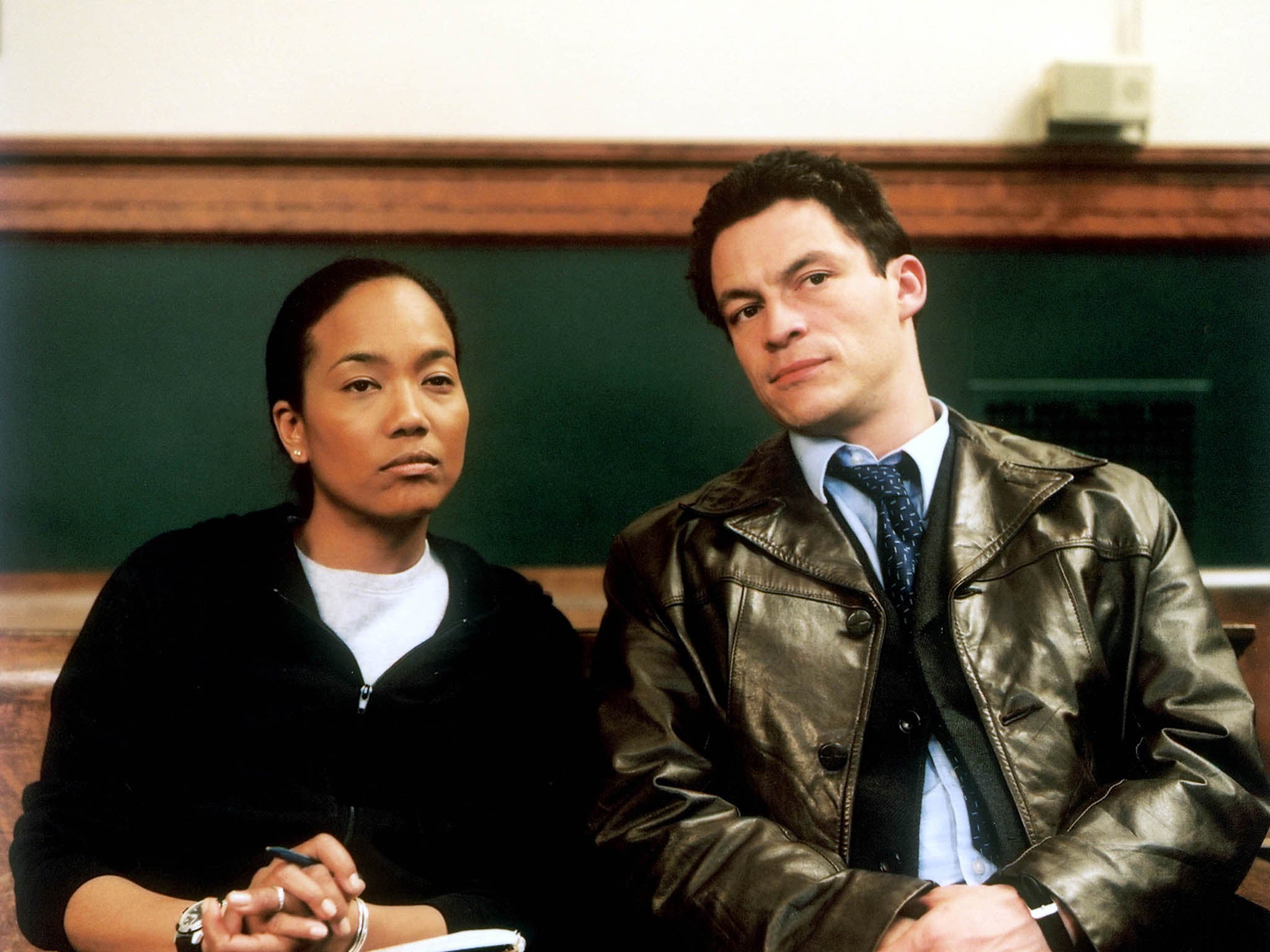
27. Slapstick (season 3, episode 9)
Prez, who arguably got his job through nepotism, becomes a pariah after accidentally killing a Black plainclothes police officer. The complex storyline, which is tinged with racial and societal overtones, isn’t made any better by his slimy father-in-law Major Stan Velchek.
26. Stray Rounds (season 2, episode 9)
We rarely get to see how the crime in Baltimore affects the regular people who aren’t in the so-called “game”. We get a heartbreaking glimpse of it here, as a young boy catches a stray bullet during a reckless gunfight.
25. Home Rooms (season 4, episode 3)
It’s the first day at school and Prez, who is now a teacher, quickly learns that his new job is going to be just as testing and violent as his time on the police force. Omar also has another iconic moment, as he goes to buy cereal wearing just his silk dressing gown and inadvertently robs a stash house.
24. Mission Accomplished (season 3, episode 12)
McNulty suffers an existential crisis after the death of Stringer Bell. “Who the f*** was I chasing?” he asks, while searching Bell’s apartment and finding a copy of The Wealth of Nations, a book considered to be the founding text on the workings of economics.
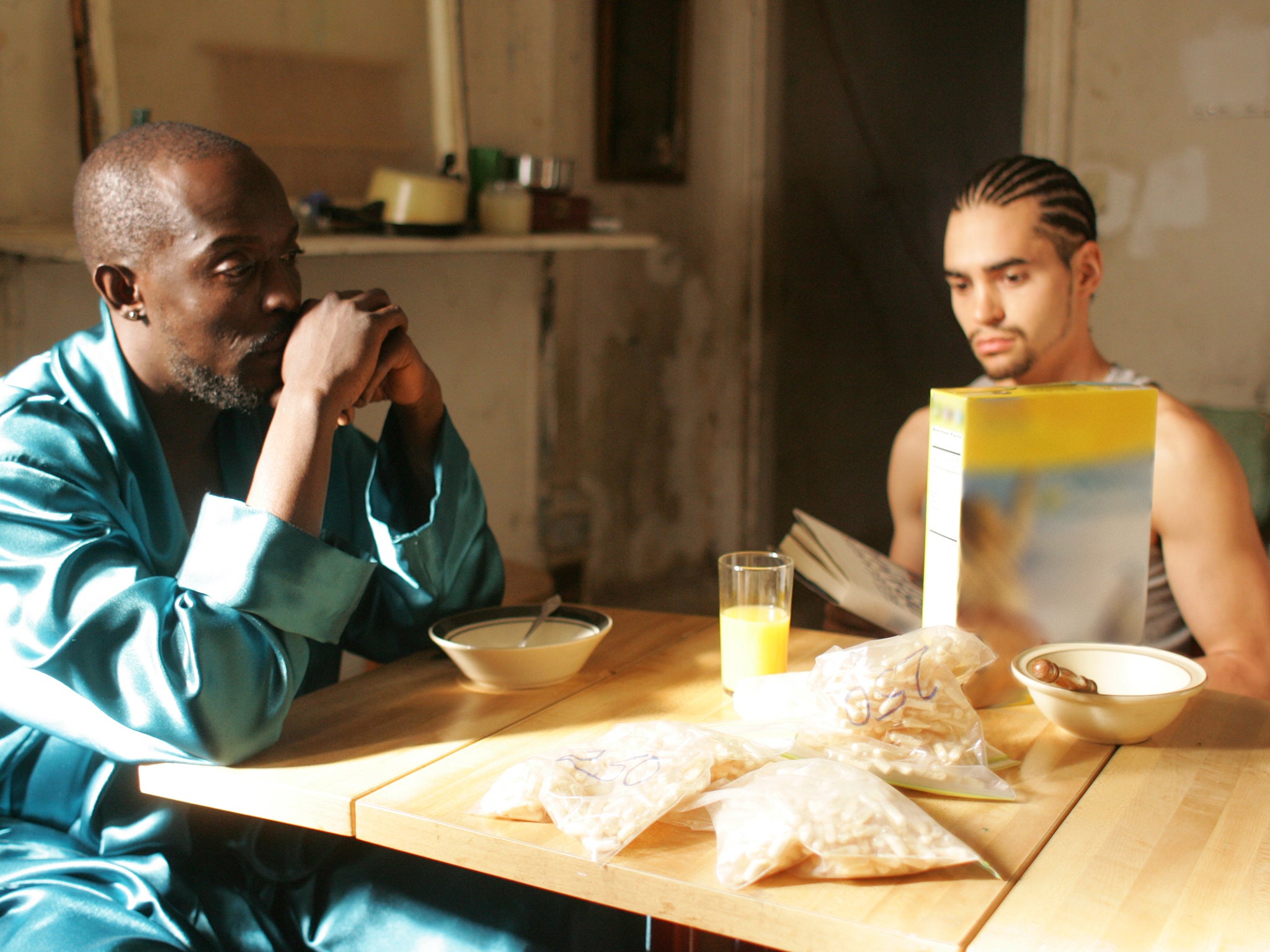
23. The Hunt (season 1, episode 11)
In the aftermath of Greggs’s shooting, we get an uncharacteristic show of compassion from Rawls to McNulty, who reassures him that he is in no way responsible for his colleague being gunned down. Meanwhile, Daniels experiences the casual racism of his own police department as a white detective is mistaken for the head of the Major Crimes Unit.
22. Port in a Storm (season 2, episode 12)
Season two’s finale starts with Frank Sobotka’s dead body being dragged from the harbour waters and doesn’t get much merrier from there. It ends with his nephew, Nick – who has been forced into witness protection after ratting out the Greeks – overlooking the docks and a once-thriving industry reduced to crime and petty theft.
21. Misgivings (season 4, episode 10)
All of The Wire’s best characters have layers, but few are as reserved and intimidating as Marlo’s right-hand man Chris Partlow. In this episode’s final scene, he’s ordered to brutally murder Michael’s brother’s father, who the audience is led to believe is a paedophile. Chris kills him with such raw emotion that we can only conclude that he’s suffered at the hands of similar fiends.
20. A New Day (season 4, episode 11)
Carcetti’s “New Day” scheme starts brightly, as the police are told to ignore stats and get back to doing police work. But Herc’s sloppiness – which includes losing police property, endangering a witness and being tricked into searching the car of a priest – means he won’t be around to reap any rewards.
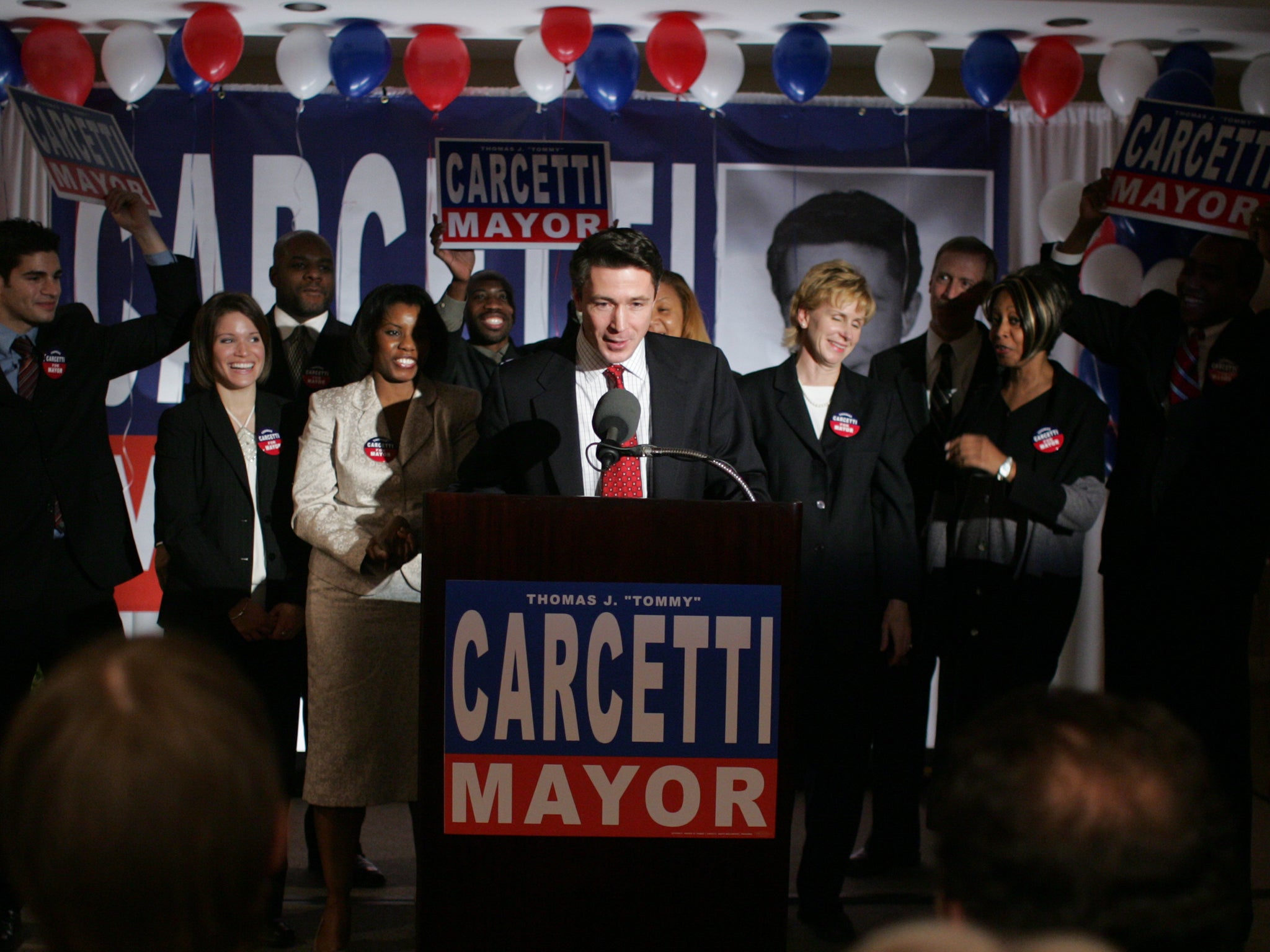
19. Storm Warnings (season 2, episode 10)
Ziggy is unfairly maligned as the show’s most annoying character. Instead, he should be seen as one of its most sympathetic, having constantly lived in the shadow of his very unsympathetic father Frank. Sadly, it takes him killing two people in a moment of anger and frustration for us to realise it. The scene where Nick reminisces about better days with Ziggy feels like he’s saying goodbye to an old friend who has passed away, not one that has been sent to prison.
18. Sentencing (season 1, episode 13)
The downfall of the Barksdale organisation, the violent crime faction at the heart of season one, should feel like a triumphant moment. But there are no happy endings in The Wire. Especially when Stringer Bell, with his intellect and business savvy, is allowed to walk free and concoct his new vision for how a criminal enterprise should be run.
17. Margin of Error (season 4, episode 6)
It’s election day in Baltimore and Carcetti ascends to his mayoral throne. “Margin of Error” is Aidan Gillen’s single best episode on the series, and he captures all the anxiety and excitement that comes from tangling with such a victory. We also get an oddly enthralling montage of votes being cast that’s soundtracked by Curtis Mayfield and illustrated by Cutty, an ex-felon banned from voting, jogging through the city.
16. Game Day (season 1, episode 9)
For all the great jokes and comedy scenes in The Wire, there aren’t many episodes that are purely fun. “Game Day” is a rare exception. The episode centres around a basketball game between East and West Baltimore, and is followed by a thrilling car chase in which Avon outsmarts the entire Major Crimes Unit.
15. Dead Soldiers (season 3, episode 3)
Omar attempts to rob a Barksdale stash house with his crew but it goes awry, resulting in the death of one of his sidekicks. When investigating the crime scene, Bunk witnesses children imitating Omar. At the time the episode first aired, this scene felt inconsequential. But it’s truthfully one that would result in Omar’s death two seasons later, albeit from a very unlikely source. This episode also debuts “the policeman’s wake” – a health and safety nightmare in which the entire police department gets very drunk and toasts a departed colleague, whose dead body gets propped up on a pool table.
14. Clarifications (season 5, Episode 8)
We all know that Omar, by the nature of his career, isn’t going to last until the end of the show. But his death at the hands of a little boy named Kenard – who shoots Omar in the head while he’s buying cigarettes – hits us like a punch to the solar-plexus. It’s a Shakespearean demise only made more tragic by the fact that it didn’t even make the morning paper.
13. -30- (season 5, episode 10)
All good things must come to an end, but The Wire doesn’t end with a bang and instead – in the best possible sense – a whimper. After five seasons, we realise that nothing much has changed in Baltimore, just the faces: the confident Michael replaces Omar, the laid back and experienced soldier Slim Charles replaces Prop Joe, the helpless Dukie replaces Bubbles and the promising Detective Sydnor replaces McNulty. The show is over, but the stories always remain the same.
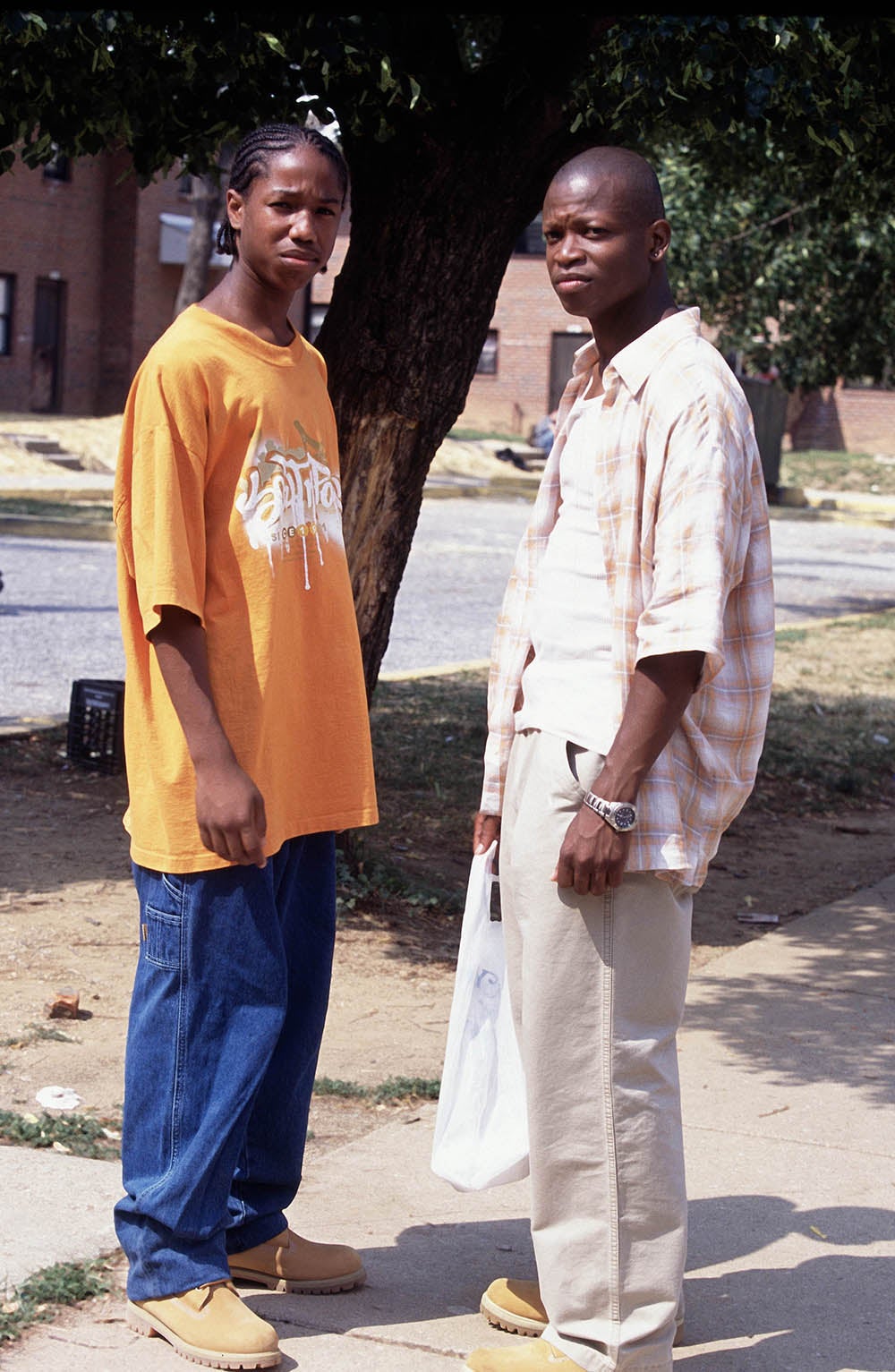
12. Cleaning Up (season 1, episode 12)
It’s fair to say that Michael B Jordan is one of the biggest stars to ever feature in The Wire, and for the 12 episodes he played Wallace, he gave us one of television’s most vulnerable characters. It’s hard not to get a lump in your throat as he pleads for his life in front of his best friends, Bodie and Poot, after being accused of snitching to the police.
11. Old Cases (season 1, episode 4)
If this were a list of The Wire’s best scenes, then the “f***” scene – where Bunk and McNulty solve a murder by using only the words “f***” and “motherf***er” – would have to come out on top. It’s a joke so good that screenwriting courses should be taught on it. Elsewhere, this episode further expands Omar’s role in the community and sees Bubbles experience what life is like in the suburbs, when McNulty inexplicably takes him to see his kids at soccer practice.
10. Bad Dreams (season 2, episode 11)
A “sins of the father” theme is all over The Wire, but never more so than in the charged relationship between Ziggy and his dad Frank, a man he tried to emulate but could never possibly become. As Ziggy meets his dad in jail, his entire facade slips away and we are left with a small, fragile boy striving for his father’s love. The pair’s possible future is cut short soon after, as Frank’s dealings with The Greeks finally catch up with him.
9. That’s Got His Own (season 4, episode 12)
Season four’s penultimate episode gives us one great high, but many more devastating lows. Omar pulls off his biggest heist ever, Dukie has to say goodbye to Prez and move to high school, and Carver sees his help bitterly rejected by young Randy, who’d been maligned at school as a snitch. Worst of all, Bubbles weeps after learning he has indirectly killed his young protegee, Sherrod, with a poisoned heroin vial. It’s a painful incident that will eventually lead to his overall redemption.
8. The Cost (season 1, episode 10)
The Wire rarely tried to entertain its audience with conventional “cops and robbers” shootouts (fact: the only cop that you see fire a gun in the entire show is Prez), but the climax to this episode is the closest we ever got to one. While attempting to entrap the Barksdales with an undercover drug deal, Greggs is shot. It’s a scene unique to The Wire, both for its cinematic qualities and its intensity. David Simon never attempted to replicate the likes of it again.
7. All Prologue (season 2, episode 6)
For a season and a half, D’Angelo was The Wire’s most intriguing character, a misunderstood, exasperated man for whom you rooted despite him being on the wrong side of the law. So to see him murdered by strangulation and left slumped against a door – with little dignity or drama – was truly sobering. Especially after he had spoken so eloquently about The Great Gatsby at a prison book club earlier in the episode, a book that mirrors his dreams of fleeing from his past. As one character we’ve grown to love descends, another, Omar, ascends. He puts the vile lawyer Maurice Levy in his place with one of The Wire’s best lines: “I got the shotgun, you got the briefcase, s’all in the game.”
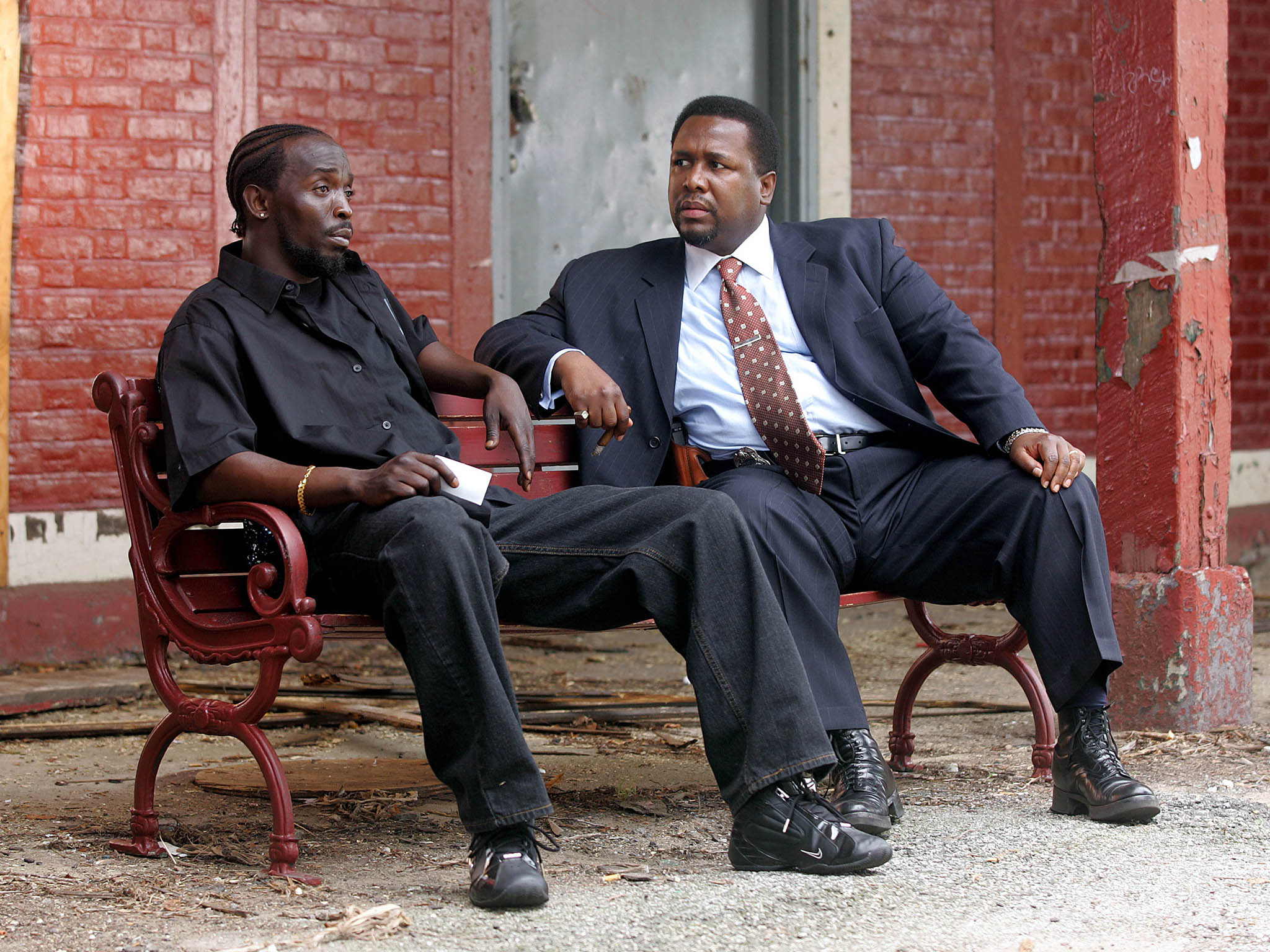
6. Homecoming (season 3, Episode 6)
The Wire was never nominated for a single major acting award. Still, both Wendell Pierce and Michael K Williams should have been recognised for the scene here where Bunk catches up with Omar in relation to the Barksdale stash house shooting. Whilst tearing into Omar, Bunk recalls their youth together in high school and how, because of “predators” like the Omar of the present day, the community spirit that they recognised from their childhoods has all but vanished. One line cuts deep: “Makes me sick, motherf***er, how far we done fell.” However, we do get a small look into what compassion looks like, when Cutty tells Avon that the “game ain’t in me no more”. Avon soothes him, acknowledging that Cutty was a “man” in the past and a “man today”.
5. The Buys (season 1, episode 3)
A landmark episode that introduced the world to Omar, possibly the greatest television character of the last 20 years. Most shows would be content with just that, but this is The Wire – it throws his introduction into an episode that plays host to possibly the best TV scene of the last 20 years. D’Angelo teaches Bodie and Wallace the rules of chess by using an analogy to explain not just how the Barksdale organisation is run, but how life is rigged against all, especially the pawns. The scene not only demonstrates to us that D’Angelo is a wise figure working in the wrong field, but also one of The Wire’s biggest messages: education is the most important thing we have.
4. Middle Ground (season 3, episode 11)
In season three, the aspirational Stringer Bell is given his cop equivalent in Bunny Colvin, a police officer who tries to change how the law works. They are both rejected: one loses their job and the other loses their life. It’s fitting that Bell – a man who carried himself so cerebrally – would be killed off in the most dramatic way imaginable, as Omar and Brother Mouzone exact their revenge against him as a team. Bell and Avon do at least get one final moment together, as they fondly recall their mischievous youth, not realising that they have both betrayed each other. This time, only one will live to deal with the regret.
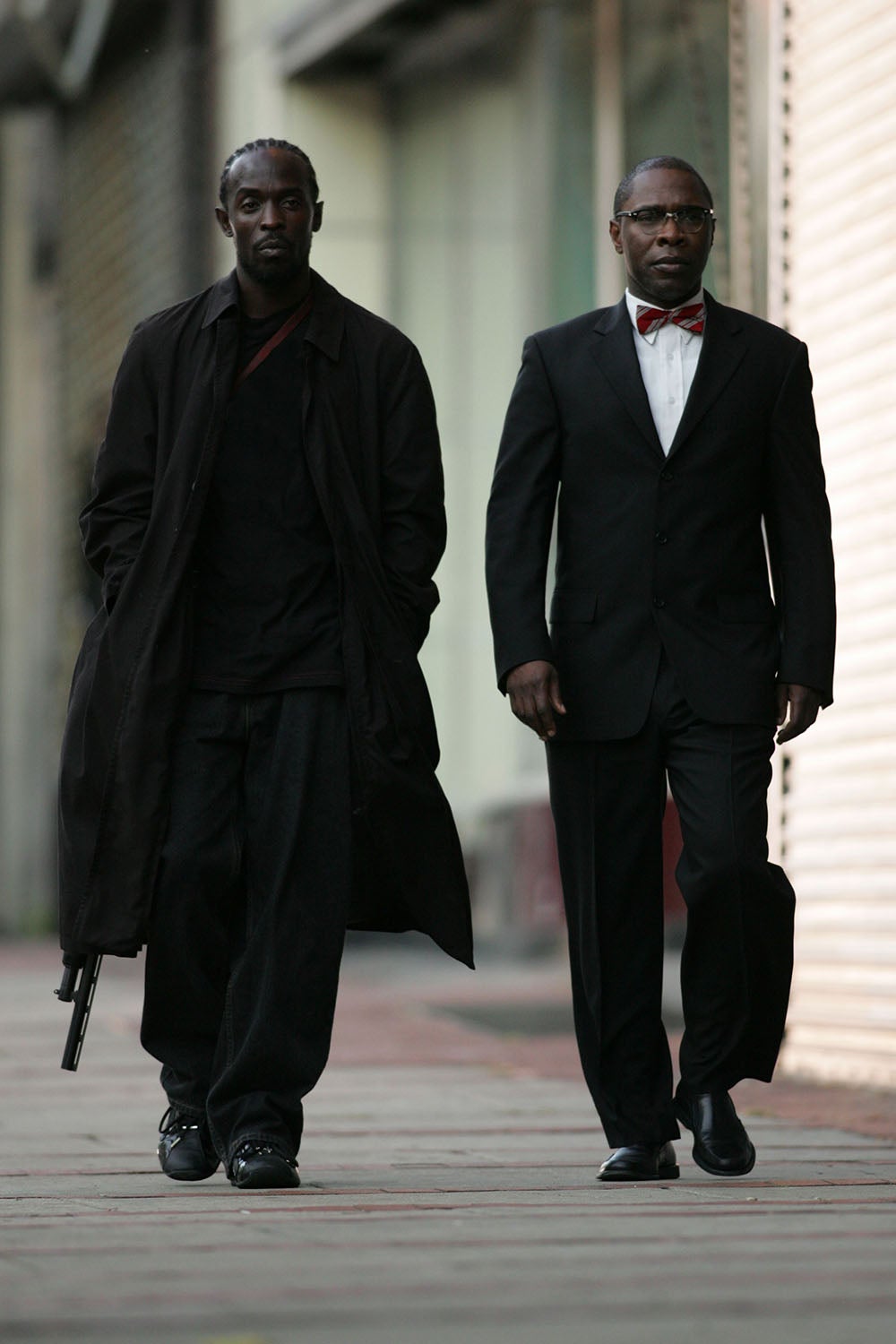
3. The Boys of Summer (season 4, episode 1)
Education is the key theme of season four. The show tells us in the season’s very first scene. Snoop, a member of Marlo’s crew and the only woman we ever see directly involved in the drug trade, buys a nail gun from a hardware store, but she interprets the guidance she receives from a shop assistant as if the tool was actually a firearm. It’s an astounding piece of writing that sets the tone for the rest of the season.
2. Late Editions (season 5, episode 9)
In season four’s “The Boys of Summer”, Michael and his friend Dukie attempt to prank a rival gang of boys by throwing balloons full of urine at them. It doesn’t work, as the balloons explode before they can throw them. But it becomes a rare moment of levity, a precious memory that the downtrodden Dukie holds on to. By the end of season five, he and Michael are very different people. One has become a murderer, the other is on the verge of becoming a drug addict. In their final heartbreaking scene together, Dukie asks Michael if he remembers the incident with the balloons – it’s one last chance to reflect on the good times they shared together. However, life has taken its toll on Michael, who can only tell Dukie “I don’t.” In just two words, The Wire takes on the failure of institutions to protect those most at risk.
1. Final Grades (season 4, episode 13)
The Wire season four is not just the show’s best season, but possibly the best season in television history. Its conclusion should be considered a masterpiece. If the entire point of David Simon’s story is that class, capitalism and racism sets many up to fail, regardless of individual talent, then this episode is his grand thesis. Many characters learn that lesson here for themselves. Bodie, while having an ill-advised lunch with McNulty just hours before he dies, realises that there is no future for him and that he’s just a pawn in the drug trade. Carver, as he pounds on his steering wheel after being forced to take Randy back to an orphanage, realises that even his position in the police can’t help him protect a child from his own inept department. Prez sees the smart but hopelessly exposed Dukie dealing drugs on a street corner, after he’s forced to graduate middle school too early, just so the school can make their graduate statistics look a little rosier. Bunny realises the futility of life, too, but in his stubbornness believes that it doesn’t have to be everyone’s fate.
David Simon has said that the book that impacted him the most in his life is Let Us Now Praise Famous Men, a study of Dust Bowl living from James Agee. It documents the lives of American farmers during the Great Depression of the 1930s. On his blog, Simon writes: “Famous Men is the book that made me ashamed and proud to be a journalist – all in the same instant. Whatever honour can be found in using the lives of others to tell tales is there, in the pages of that improbable book.” If that book is what Simon was trying to emulate, using the stories of regular people to try and tell the story of modern America, then the close of The Wire’s fourth season might be the closest he ever got to his goal.
‘The Wire’ can be rented, streamed and bought in the UK via Sky Store and Now. ‘The Wire: The Complete Series’ is available on Blu-ray, DVD and Digital from Warner Bros Home Entertainment.



Join our commenting forum
Join thought-provoking conversations, follow other Independent readers and see their replies
Comments